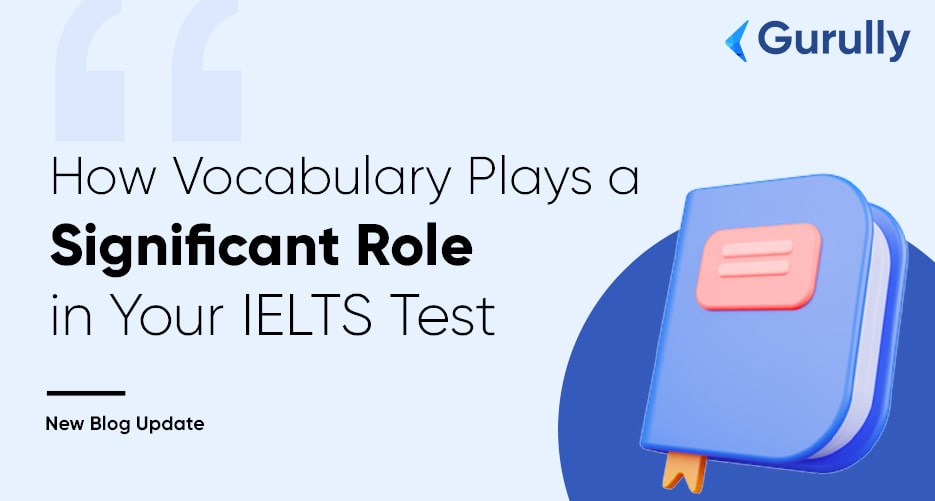Students often wonder, ‘Why is it vital to have robust vocabulary knowledge for the IELTS exam?’ As IELTS is an English Language Proficiency Exam, a massive focus needs to be given to vocabulary to assess the entire score of a candidate.
This exam consists of 4 sections: speaking, reading, writing, and listening, where one thing is common in every area, ‘vocabulary.’ So, in today’s article, let’s know the significance of vocabulary and how it plays a major role in IELTS.
Why is vocabulary vital for IELTS?
In terms of the writing and speaking section, having enriched vocabulary is a must-have skill if you don’t know. The leading reason you must work hard on vocabulary is that it carries 25% weightage in your overall score. Moreover, enhanced vocabulary collection in IELTS speaking and writing exam assists you in curating notions better.
On the other hand, having a great vocabulary in IELTS listening and reading exams makes getting our answers right hassle-free. Also, having vast knowledge about vocabulary assists you in understanding the question and locating answers quickly through scanning and skimming.
What are the different roles played by vocabulary in other sections?
- Vocabulary in the writing section
The IELTS writing section assesses your competency to articulate your visions and knowledge in words using rich and efficient grammar and vocabulary. There will be a visual representation in a question, where you need to elaborate on your words.
The next question might ask you to debate and give your opinions about that topic. So, you see, you need to be versatile and know how to play with words while putting forth your views. Choosing ideal words to define your perspective will eliminate ambiguity and convey the message explicitly.
- Vocabulary in the speaking section
The IELTS speaking test is based on evaluating your English fluency and how rapidly you create ideas and grasp those to a unique understanding. Vocabulary plays a vital role in the creation of expressive sentences. Therefore, your unfamiliarity with the words is a hindrance as the 20-30% score is determined by vocabulary.
- Vocabulary in the reading section
You will be given a few passages in the IELTS reading part to read aloud and answer specific questions based on that content. Here, you will need to rephrase the whole content in your words after understanding the passages. You can’t answer the given questions if you are unable to decipher the passage correctly.
- Vocabulary in the listening section
The listening section of IELTS contains 4 recordings of native English speakers, and it will assess your capability to perceive the attitudes and opinions. This is how they can grasp your ideas based on that speech.
You must be well-conversant with foreign accents as the recordings play different accents. In case that accent is unknown to you, it will take a little time to figure out the words. You might know the word, but it may get you off track due to the pronunciation difference.
Conclusion
So, you saw, how much vocabulary is essential in the IELTS exam and why you have to outperform it. To improve your vocabulary for the IELTS, you can create flashcards or may read a few books related to English vocabulary. Otherwise, Gurully is here to provide you with quality training on the IELTS exam.
In addition to IELTS training, we offer a wide array of IELTS practice tests so that you can analyze your skills and boost your confidence to appear for the IELTS. What are you worrying about? Fill out a contact form right now and get in touch with us!











